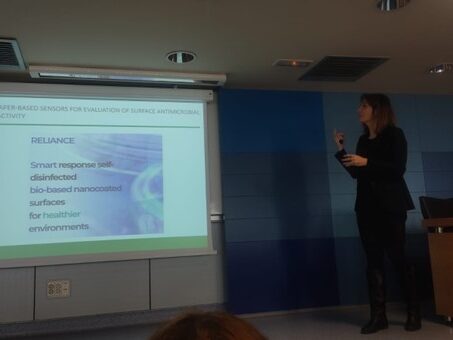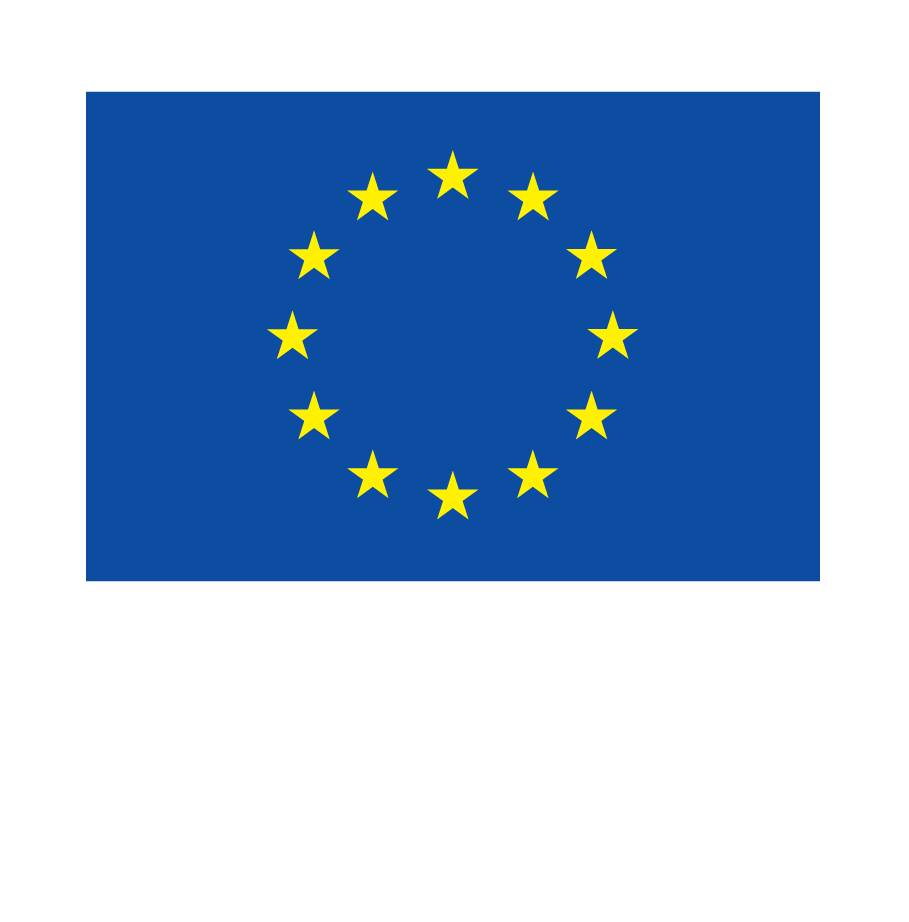
The workshop “Materials for Biosensing & Bioimaging 2023” was organised in the Universidad Autónoma de Madrid through the Institute for Advanced Research in Chemical Sciences - Universidad Autónoma de Madrid (IADCHEM).
The audience included an international body of students, faculty and staff from Universidad Autónoma de Madrid and other universities in Spain.
Fabiana Arduini, partner in RELIANCE project and leader of the antimicrobial characterization work activities, was invited as a speaker to share on her research activity in the electrochemical paper-based devices. The principle will be applied in RELIANCE project for evaluating the antimicrobial efficiency of the developed nanocoatings by using paper-based devices combined with a smarphone-assisted potentiostat. This method presents a high interest due to the findings that paper-based sensors can overcome the limitation of the classical miniaturized electrochemical sensors, with published articles in several high-impact factor journals, including Biosensors and Bioelectronics (IF 12.5) and invited reviews (e.g. Nanomaterials and paper-based electrochemical devices: merging strategies for fostering sustainable detection of biomarkers Journal of Materials Chemistry B 10 (44), 9021-9039, selected for cover page).
Reportedly, paper-based electrochemical (bio)sensors demonstrate an ability to overcome the limitations of the other printed electrochemical sensors in the measurement of entirely liquid samples by detecting the target analyte in the aerosol phase or solid sample, without the additional sampling system. More information on that could be found in the invited review ”Electrochemical paper-based devices: When the simple replacement of the support to print ecodesigned electrodes radically improves the features of the electrochemical devices” published in Current Opinion in Electrochemistry SI: Emerging Opinions (2022) (Arduini, F., 2022. Electrochemical paper-based devices: When the simple replacement of the support to print ecodesigned electrodes radically improves the features of the electrochemical devices. Current Opinion in Electrochemistry, p.101090).

Views and opinions expressed are however those of the author(s) only and do not necessarily reflect those of the European Union or the European Health and Digital Executive Agency (HADEA). Neither the European Union nor the granting authority can be held responsible for them.
© All Rights Reserved 2025 | Reliance-HE
Designed and Developed by Europroject

